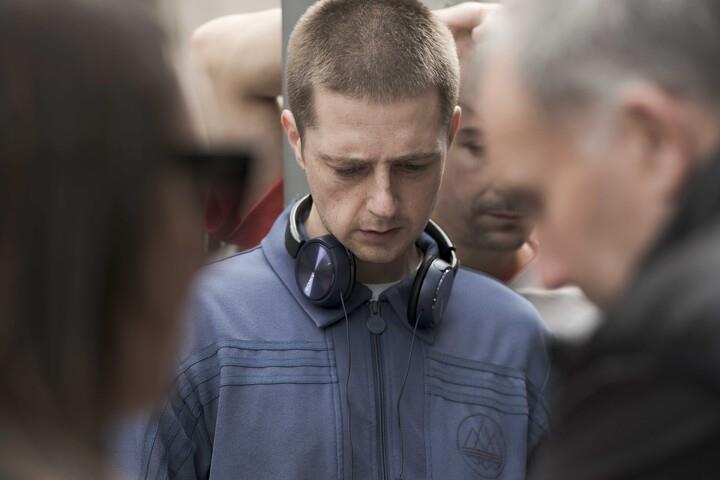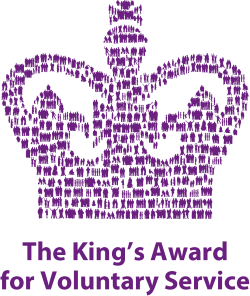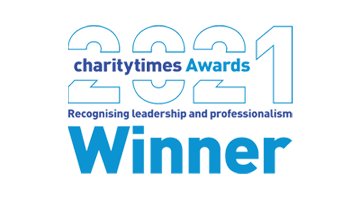Rhys Chapman is a critically acclaimed writer, director and producer whose work is celebrated for tackling pressing social issues with authenticity and emotional depth. From his breakout project Wonderkid (2016), which addressed homophobia in professional football, to his Oscar-qualified short Ryan Can’t Read (2024), lauded by Ken Loach as “touching” and “important”, Chapman’s films provoke thought and inspire action.
Chapman’s breakout project, Wonderkid, was backed by Adidas, the Premier League and Sky Sports, and premiered at the Raindance Film Festival before being broadcast on Sky Sports and Sky Cinema across Europe. His most recent short film, Ryan Can’t Read, which won the Grand Jury Prize for Best Live Action Short at the Edmonton International Film Festival in Canada, has been showcased at numerous Oscar and BAFTA qualifying festivals. Its recognition at Edmonton qualified it for consideration at the 97th Academy Awards.
Rhys was referred to TLP in 2023 while in suicidal crisis, and he has now generously offered to tell us about his experiences with us…
What brought you to TLP?
I’ve struggled with depression for most of my adult life, but this time was different. It was heavier, like I was falling and couldn’t find anything to grab onto. I spiralled quickly, trapped in a cycle of guilt and shame.
The longer I stayed in that headspace, the more past traumas surfaced. Old wounds I thought had healed came back with force, flooding my mind. Every mistake, every embarrassing moment, and every regret felt like it was suffocating me all at once. Dark thoughts and visualisations began creeping into my mind uninvited. It felt like the only way to free myself from the pain would be if I no longer existed. The longer I remained in that place, the more overwhelming these thoughts and feelings of worthlessness became, and I genuinely believed the world would be better off without me. It seems delusional saying it now when I’m able to rationalise, but at the time I saw no other way out of the pain I was feeling.
Years before, a GP had told me that if I ever felt suicidal, I should go straight to A&E. That advice was the only thing I could hold onto at the time. When I took myself to hospital, I felt stupid and embarrassed, like I was wasting their time. But I also knew I was safe from myself. What followed was far from straightforward, but eventually I spoke to a mental health professional who made sure I got the help I needed.
What were your first impressions of The Listening Place?
The referral process was fairly simple. I received a call back within a day of filling in the form from someone who spoke softly and clearly knew how to talk and listen to someone who is in a vulnerable state, which was really reassuring.
When I came for my first meeting and assessment, this continued. Everything had been thought of to make you feel welcome and comfortable. Volunteers on reception always greet you by name, are attentive and present, and always offer you a drink. Small details like calming sounds or music are often played in the waiting area and the toilets are always immaculate. The meeting rooms also feel very private, like it’s only you and the person you are with, which helps you feel comfortable enough to talk even when you’re not feeling great.
From the moment you walk through the door, there’s a sense that this place understands what you’re going through. It’s not clinical or institutional – it feels warm and human. The attention to detail shows that they’ve thought carefully about what someone in crisis might need, right down to the basics of feeling clean and comfortable whilst you’re there. When you’re feeling worthless, these small gestures can mean everything. They certainly did to me.
How was TLP able to help? Was it any different to support you’d received in the past?
It felt completely different from the start. It was an open space where you could say whatever you liked without fear of judgement or being steered towards a particular outcome. The volunteers know how to listen in a way that’s genuine. They show real compassion and make you feel seen and heard, not analysed or categorised, just truly listened to.
What struck me most was that there was no agenda beyond giving me the space to be heard. I wasn’t being assessed for the right medication or guided towards specific diagnoses. Instead, I was simply allowed to speak about what was happening in my mind and heart, and someone was there to receive it without trying to fix me or fast-track me towards an easy solution. Sometimes, that’s exactly what you need: just to be heard by another human being who understands that listening itself can be healing.
What was your experience of TLP’s volunteers?
The experience with The Listening Place volunteers was very refreshing. It was clear from the start that I was being received with open arms, and the person sitting opposite me was wholly present, their intentions pure. They always read any notes and remember things you’ve said, and that goes for everyone there. Although you meet with the same person throughout your time, on the odd occasion I had to reschedule and meet with someone else, it was always the same level of care and attention.
The most memorable experience I had during my time at The Listening Place was when I mentioned that I had a difficult experience coming up between my sessions. I hadn’t even spent too much time talking about it and hadn’t given it as much emphasis as I truly felt about the situation, but someone from TLP called me on the day of the event to ask how I was feeling and how it had gone. This awareness and genuine compassion really makes you feel like someone cares that you exist. When I hung up from that call, I was moved to tears with gratitude. I was in a very vulnerable place, and this simple act of remembering and reaching out helped stop me spiralling. It wasn’t just that they remembered, it was that they cared enough to act on that memory. In that moment, I felt truly seen as a person, not just as someone passing through their service. That phone call probably took them two minutes, but it meant the world to me.
Your films aim to spark a wider conversations about important social causes — do you feel that a similar conversation is needed around suicide?
Yes, absolutely – there’s a huge need for more open conversation about suicide. It’s one of the most tragic things to hear when someone has been lost to it, and it seems to be happening more and more. I’ve known more friends and associates who have taken their own lives than anyone should ever have to, and I know many people reading this will feel the same way.
The frequency feels like it’s increasing, yet we still struggle to talk about it openly. Suicide is perhaps one of the most delicate subjects to discuss because of the potential impact on those who have lost loved ones, who face a particularly challenging and complicated form of grief. The last thing you want is to cause additional pain when your intention is to help. But silence isn’t helping anyone either. That’s exactly why I agreed to do this interview and feel compelled to share my experience — to help break down the stigma and encourage others to seek help. I’m also nervous about sharing this, which itself shows how much shame still surrounds these conversations. If we can create more spaces for honest conversation about mental health and suicidal thoughts, we might be able to reach people before they reach that crisis point. It’s also about educating people about what support is available for those who feel life is no longer worth living. Sometimes just knowing that others have been through similar struggles and found a way forward, and that there are places like The Listening Place ready to help, can make all the difference.
How are you feeling now, after finishing support with TLP?
I’m doing much better now, and I can say that with genuine gratitude. The Listening Place acted like a safety net during the most difficult time of my life. It caught me when I was falling and stopped me from crashing completely. More than that, it helped me stabilise myself and my life, creating the foundation I needed to eventually seek professional help. Looking back, I can see how crucial that period was, not just for my immediate safety, but for giving me the strength to carry on.
I would urge anyone who is having suicidal thoughts to refer themselves to The Listening Place, because this process literally saved me. The volunteers who give their time so generously, and the charity that creates this space for healing, are doing something truly extraordinary. I’m deeply grateful to everyone who played a part in my recovery. Sometimes the most powerful intervention is simply being heard by another human being who understands that listening itself can be sacred, and that’s exactly what they provide every single day.



